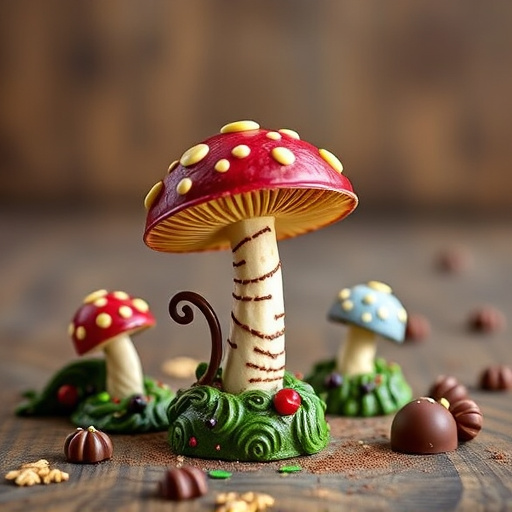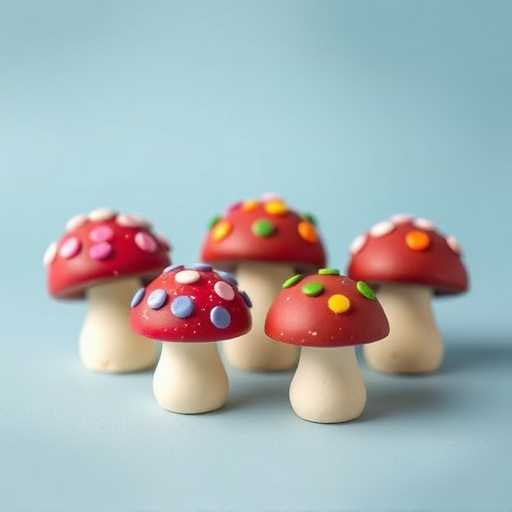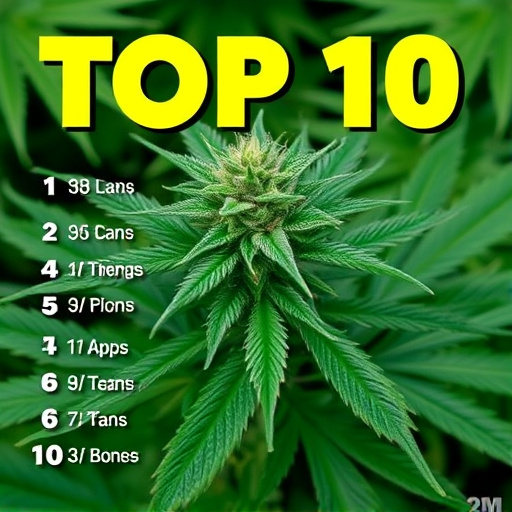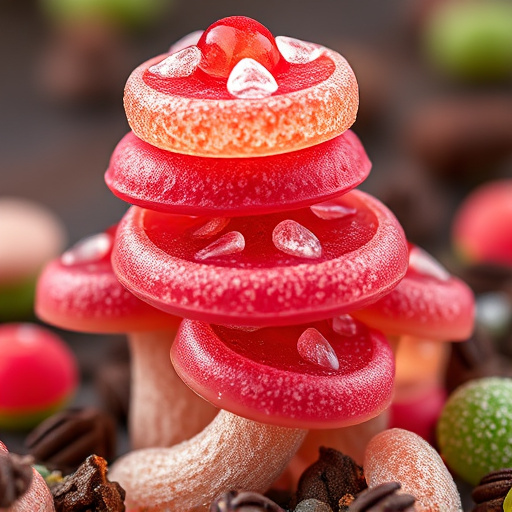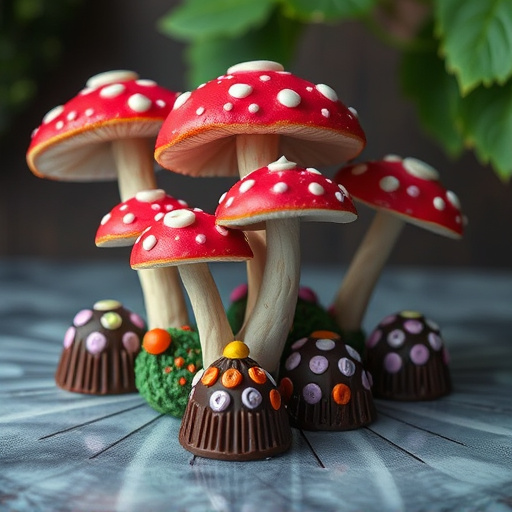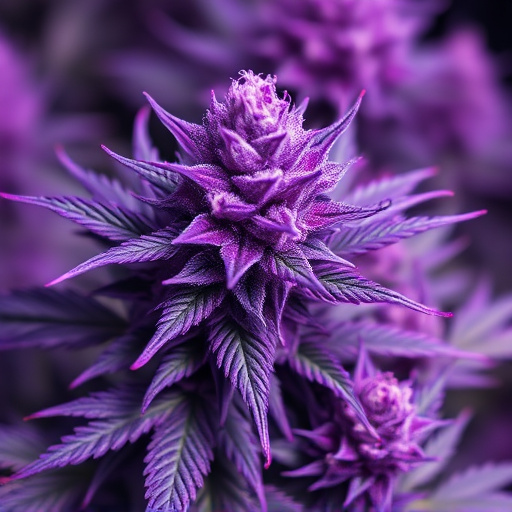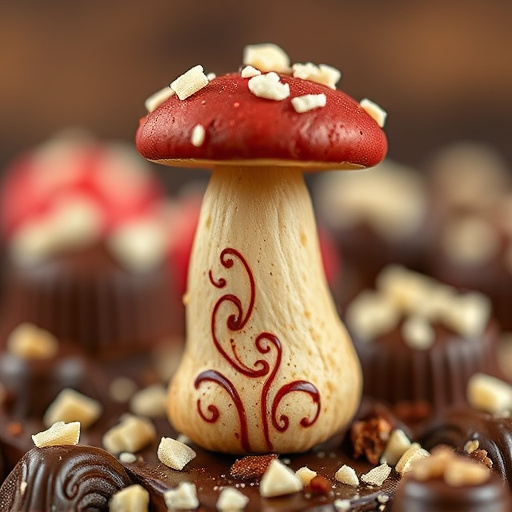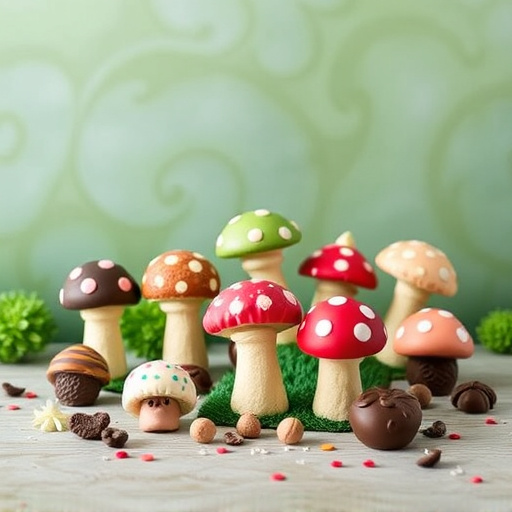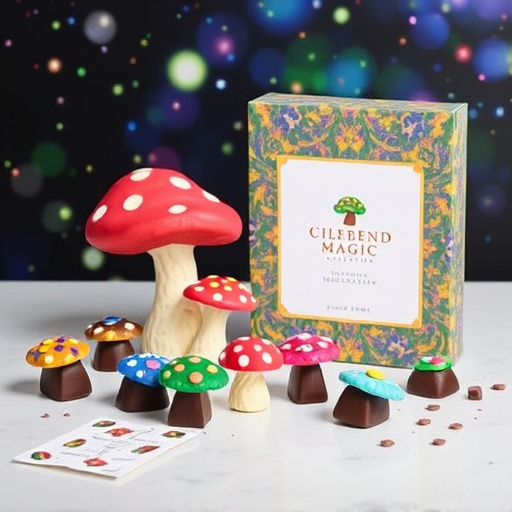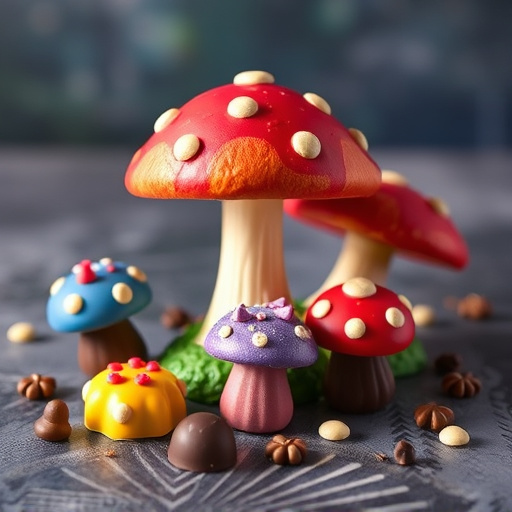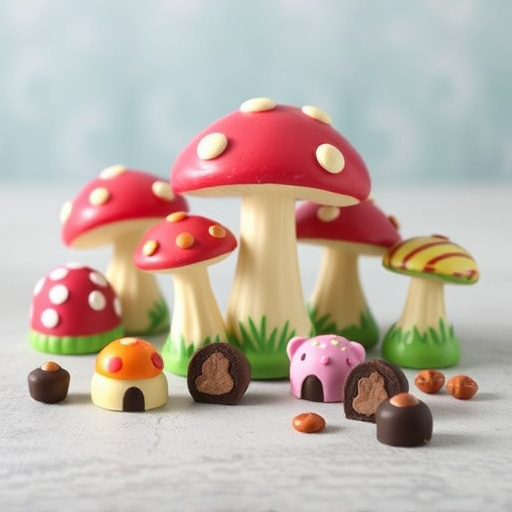The legal status of magic mushroom chocolates varies worldwide due to differing cultural and regulatory contexts. While many countries still enforce strict regulations or bans, there's a growing trend towards decriminalization and medical acceptance of psilocybin mushrooms, particularly in North America and Europe. This shift is driven by evidence of psilocybin's therapeutic benefits, but recreational use remains heavily restricted. The Netherlands and Portugal have adopted more liberal stances, allowing controlled sale and consumption, while countries like the US vary significantly across federal and state levels.
“Unveiling the world of vegan magic mushroom chocolates, this article explores a burgeoning trend that combines culinary delight with ancient botanical wonders. With a focus on the Legal Status of Magic Mushroom Chocolates, we navigate the global landscape, from regulatory frameworks to country-specific practices. Delving into production methods and ingredients, we uncover the art of crafting vegan alternatives while maintaining purity and potency. Additionally, we analyze market trends, consumer perceptions, and the potential impact on mental health and wellness.”
- Current Legal Landscape: Where are Magic Mushroom Chocolates Standing?
- – Overview of global legal status
- – Country-specific regulations and examples
Current Legal Landscape: Where are Magic Mushroom Chocolates Standing?
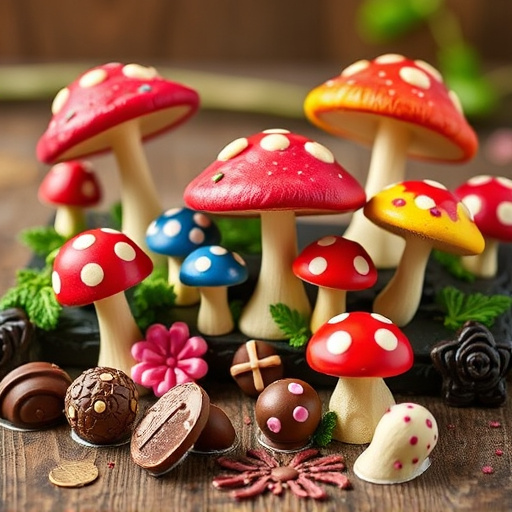
The legal status of magic mushroom chocolates is a complex and evolving topic, reflecting the broader landscape of cannabis-derived products. In many countries, the cultivation, sale, and consumption of psychedelic substances, including mushrooms containing psilocybin (the active compound), are strictly regulated or outright illegal. This legal variability stems from international conventions and national legislative frameworks that differ widely across regions.
Currently, there is a growing trend towards decriminalization and regulatory acceptance of medicinal and therapeutic uses of psilocybin mushrooms. Several jurisdictions have begun to recognize their potential for mental health treatments, leading to pilot studies and changing legal classifications. However, the recreational use of magic mushrooms still faces significant barriers, with many countries maintaining strict controls to prevent widespread distribution and access. Understanding the Legal Status of Magic Mushroom Chocolates is crucial for consumers, producers, and researchers navigating this emerging market.
– Overview of global legal status
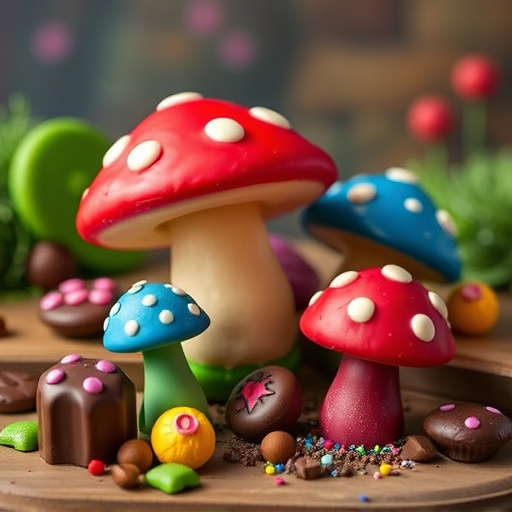
The legal status of magic mushroom chocolates varies significantly around the globe, reflecting diverse cultural and regulatory landscapes. In many countries, such products are strictly regulated or even illegal due to the presence of psilocybin, a psychoactive compound found in certain types of mushrooms. These restrictions often stem from concerns related to public safety, mental health, and potential for abuse. However, there’s a growing trend towards decriminalization and medical authorization in various jurisdictions, particularly in North America and parts of Europe. This shift is driven by emerging scientific evidence suggesting therapeutic benefits for conditions like depression, anxiety, and PTSD.
Some countries have embraced the potential of psilocybin therapy, legalizing its use under strict medical supervision. The Netherlands, for instance, has a more permissive approach, allowing the sale and consumption of small amounts of psilocybin mushrooms for personal use. Conversely, other regions maintain stringent controls, prohibiting all forms of psilocybin-containing products, including chocolates infused with magic mushrooms. As such, the legal status of magic mushroom chocolates remains a complex and evolving topic globally.
– Country-specific regulations and examples
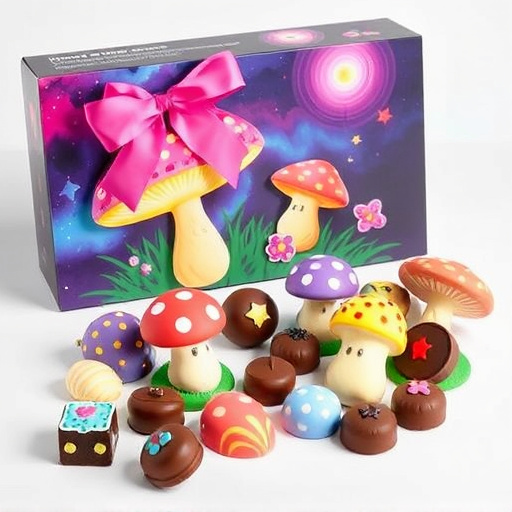
The legal status of magic mushroom chocolates varies significantly across different countries, reflecting diverse cultural and regulatory landscapes. In some nations, such as the United States, possession and consumption of psilocybin mushrooms (the active ingredient in magic mushrooms) is strictly regulated or even illegal at both federal and state levels. For instance, California has legalized psilocybin for medicinal use, while other states maintain stringent restrictions.
In contrast, countries like Netherlands and Portugal have taken a more liberal approach, allowing the sale and consumption of psilocybin-containing products under specific conditions. This includes magic mushroom chocolates, which are often marketed as gourmet or wellness treats. However, these products typically come with strict age limitations and regulations regarding their sale and distribution to ensure responsible use.
The current legal landscape surrounding the production and sale of magic mushroom chocolates varies greatly worldwide, reflecting diverse cultural perspectives on cannabis products. As the global conversation around decriminalization and medical benefits continues, understanding the legal status of magic mushroom chocolates is crucial for both consumers seeking innovative treats and businesses aiming to enter this burgeoning market. In terms of navigating the legal status of magic mushroom chocolates, it’s essential to stay informed about country-specific regulations, as what may be permitted in one region could be strictly regulated or prohibited in another.
